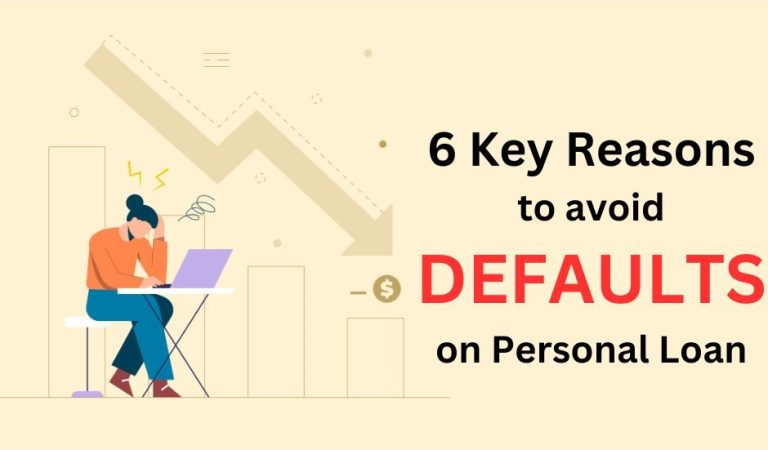6 Key Reasons to Avoid Defaulting on a Personal Loan

A personal loan is a financial tool that allows individuals to borrow money for various purposes such as consolidating debt, home improvements, or covering unexpected expenses. Defaulting on a loan refers to the failure to make timely repayments according to the loan agreement. Responsible borrowing and loan repayment are crucial for maintaining financial stability and avoiding the negative consequences that come with defaulting on a personal loan. This article aims to highlight the key reasons why defaulting on a personal loan should be avoided at all costs.
Reason 1: Negative Impact on Credit Score
A credit score is a numerical representation of an individual’s creditworthiness, measuring their ability to repay debts. Defaulting on a personal loan has a significant detrimental effect on one’s credit score. This default is typically reported to credit bureaus and remains on the credit report for several years, becoming a lasting black mark. A low credit score makes it challenging to secure future loans, credit cards, or favorable interest rates. Lenders perceive defaulters as high-risk borrowers, reducing their willingness to extend credit.
Reason 2: Accumulation of Additional Fees and Charges
Defaulting on a personal loan not only affects credit scores, but it also leads to the accumulation of additional fees and charges. Late payment fees and penalties are imposed by lenders when borrowers fail to meet their repayment obligations on time. These charges can escalate rapidly, compounding the original loan amount and making it more difficult to repay the debt. Over time, the outstanding balance can snowball, exacerbating the financial burden and prolonging the path to financial stability.
Reason 3: Legal Repercussions
Defaulting on a personal loan opens the door to potential legal actions pursued by lenders. Depending on the loan agreement and jurisdiction, lenders may take legal recourse to recover their funds. This can include filing a lawsuit against the defaulter, seeking wage garnishment, or even seizing assets to satisfy the debt. Legal repercussions not only incur significant expenses for the borrower but also leave a lasting impact on personal finances and impede future financial opportunities.
Reason 4: Strained Relationships with Lenders
Maintaining healthy relationships with lenders is crucial for accessing favorable financial products and negotiating optimal terms. When an individual defaults on a personal loan, the trust and credibility established with lenders are severely damaged. Lenders view defaulters as unreliable and may be hesitant to extend credit in the future. Strained relationships with lenders limit the ability to negotiate lower interest rates or flexible repayment plans in case of financial emergencies.
Reason 5: Stress and Mental Health Impact
Defaulting on a personal loan takes a toll on an individual’s emotional well-being. Financial instability, compounded by the guilt and anxiety associated with missed payments, can cause heightened stress levels and negatively impact mental health. The constant worry about outstanding debt and impending consequences can lead to sleepless nights, strained relationships, and a diminished quality of life. It is essential to recognize and address these stressors proactively by seeking support from friends, family, or professional resources.
Reason 6: Limited Financial Opportunities
Defaulting on a personal loan severely restricts access to future financial opportunities. When lenders review credit applications, they take previous defaults into consideration. As a result, obtaining future loans and credit cards becomes increasingly difficult. Defaulting borrowers may find themselves facing higher interest rates, stricter terms, or outright denials. Furthermore, mortgage applications will be impacted, potentially resulting in less favorable interest rates or even rejection. Defaulting on a personal loan can hinder one’s ability to achieve future financial goals and aspirations.
Conclusion
In conclusion, defaulting on a personal loan should be avoided due to the significant negative consequences that can follow. The six key reasons discussed in this article highlight the impact of defaulting on credit scores, accumulation of additional fees, legal repercussions, strained relationships with lenders, stress and mental health, and limited financial opportunities. It is crucial to prioritize responsible borrowing, timely repayments, and seeking assistance when facing loan repayment challenges. By embracing financial responsibility, individuals can safeguard their financial well-being and pave the way for a brighter future.

